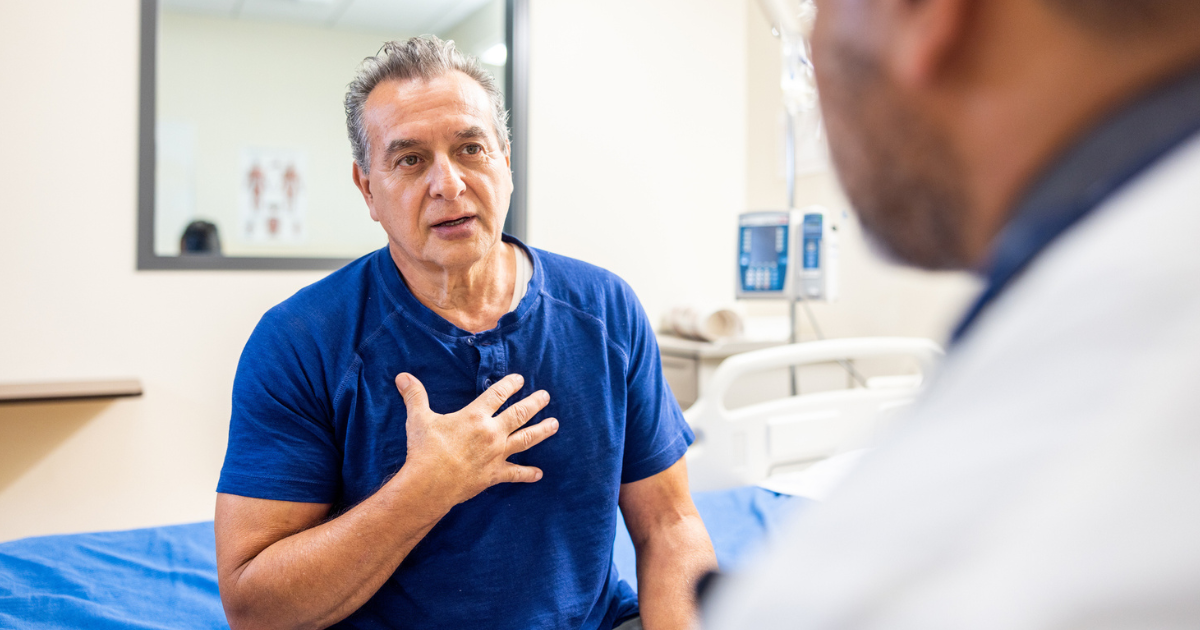8 questions you should ask when diagnosed with pancreatic cancer

When confronted with the diagnosis of pancreatic cancer, for yourself or a loved one, you may feel frightened and overwhelmed.
At Nebraska Medicine we have an expert team that will help guide you and your family through the treatment. Below I have compiled a list of questions I recommend all my patients with pancreatic cancer ask their oncology team.
1. What type of pancreatic cancer do I have?
A pancreas tumor forms when cells found in the pancreas change and start to grow abnormally. There are two main types of pancreatic cancers, adenocarcinoma and neuroendocrine tumors. The treatment of each is very different.
2. What stage is my tumor?
A tumor’s stage refers to the size and spread of the tumor in the body. We use imaging such as a CT scan or MRI to determine whether the cancer has spread to lymph nodes or other organs in the body. The treatment plan may change depending on the stage of your tumor.
3. What is my recommended treatment plan?
Depending on the cancer type, molecular profile and stage of your tumor, treatment may vary. The Fred & Pamela Buffett Cancer Center has a multidisciplinary team comprised of expert medical oncologists, surgical oncologists, radiation oncologists, radiologists and pathologists who will review your case and establish an individualized treatment plan. It is important to ask whether you are eligible for any clinical trials.

4. What side effects might I experience throughout my treatment plan?
Side effects may vary from person to person, and can be treated by your health care team. A key to managing side effects is to be aware of them and communicate with your oncology team when they arise.
5. Is surgery recommended for my tumor?
The goal of surgery is to remove the cancer and the surrounding lymph nodes. It is important to ask for details on the recovery process and what complications can occur. Your surgery should be performed by a specialist who performs a large volume of pancreas cancer operations. This will decrease your risk for complications and improve your chances for a curative operation. Your surgery may be able to be performed through a minimally invasive approach which has been shown to speed up your recovery.
6. Are the symptoms I am having caused by the tumor and how can we improve them?
Patients with pancreas cancer present with a variety of symptoms which commonly include abdominal or back pain, jaundice (yellowing of the skin), weight loss and diarrhea. It is important for your provider to address each of these symptoms in order for you to tolerate treatment well.
7. Should I change my diet?
The pancreas has two main functions, digesting the food you eat and blood sugar control.
Patients with pancreatic cancer may have a worsening of their diabetes or been newly diagnosed with diabetes. It is important for you to have good blood sugar control which may require a referral to a diabetes specialist or endocrinologist.
When food is not digested properly, patients can experience diarrhea or loose, oily stools. Replacing pancreas enzymes in a pill form can help reduce these symptoms and allow for better food absorption.
A dietician will be an important member of your oncology team.
8. Is there support available to help me or my loved ones better cope with my diagnosis?
Pancreas cancer and the treatment process can be difficult for you and your family. We are a team at the Fred & Pamela Buffett Cancer Center and will provide you with support and resources to cope with your diagnosis. Our palliative care providers can help with symptoms management, and psychologists with specialty training in oncology are also available.




